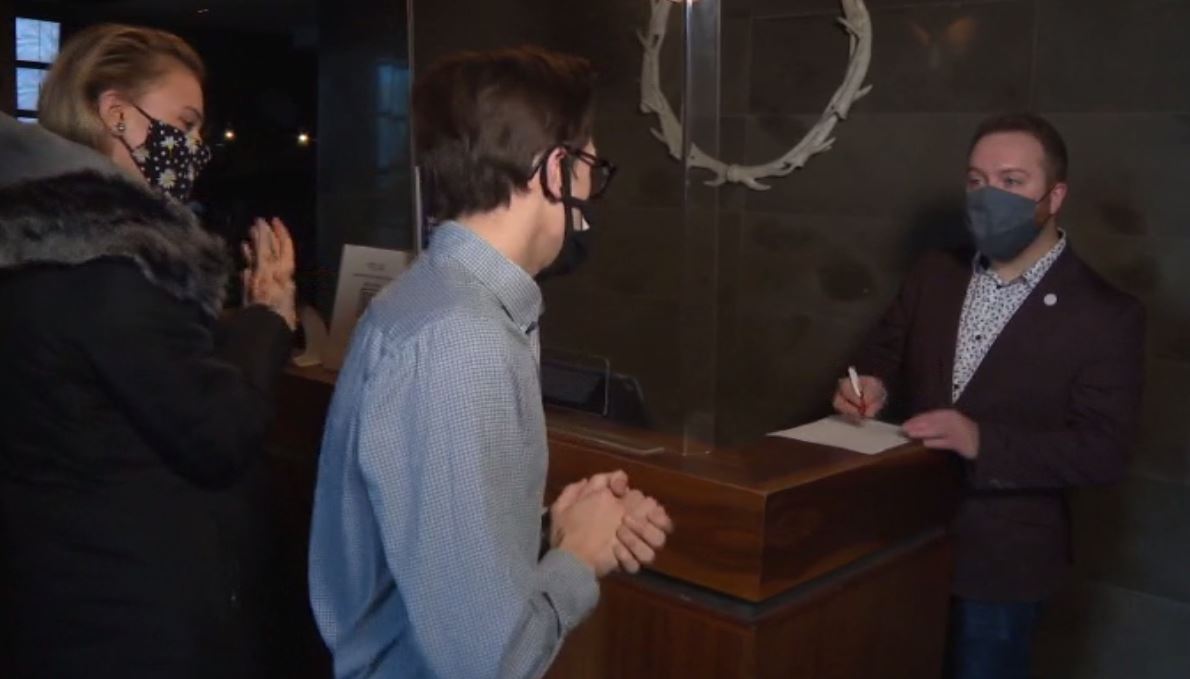There are currently more than 3,200 active COVID-19 cases in Alberta, and 42 per cent have unknown sources.

Some patients have trouble remembering where they were two weeks ago, but there is also a growing number of people reluctant to share that information with contact tracers.
Dr. Darren Markland, an ICU doctor in Edmonton, said it’s “terrifying” that people aren’t co-operating.
“The first thing people need to realize is there is no blame,” he said. “Contact tracing is being done anonymously for a reason. We are not here to pass judgment.
“We are here to find out who could potentially be infected, because it is the most important role to control infections.”
Toronto had to roll back its contact tracing efforts after case numbers rose too rapidly and tracers couldn’t keep up. Markland is worried that it could happen in Alberta too.
“All you have to do is look at Ontario to see where we are in two weeks,” he said.

Get weekly health news
“Albertans were very good during the first phase of listening to recommendations and following them. Those haven’t changed.
“We have to be more careful than we ever were before. Halloween is going to be an issue, Christmas is going to be an issue. I’m a little nervous to see what the results of Thanksgiving are going to be. If we do get a huge spike in hospital admissions, then my feeling is that we need to go back to the restrictions we had early on.
“I do believe at this time voluntary measures will not be enough. I think a similar analogy would be if we made the speed limit voluntary. How many people would be going under 100 kilometres per hour?”
There are businesses in the province that are helping with contact tracing measures, including the restaurant chain Chop Steakhouse & Bar. Since July, Alberta locations have been recording their customers’ names and numbers.
READ MORE: What’s a COVID-19 close contact?
“We collect them in private… and we only distribute them to Alberta Health if they ask for those names or phone numbers from a particular day. After 30 days we destroy them,” Chop Steakhouse & Bar president Marcel Blais said.
“I believe this is something that builds confidence in the marketplace with consumers.
“Should there be an event where they are exposed to someone who has COVID(-19), they are contacted quickly and that enables them to take quick action — whether that is to take a test, reduce the size of their bubble or anything else that is important for them for protecting their family and friends and loved ones.”
Markland said it’s a good business policy, but this practice should be more universal and the only way to do that is through government intervention.
“If there are so many infections to the point where it overwhelms the system, then we will no longer have the ability to suppress the spread of the virus effectively, and that window is closing very quickly,” he said.









Comments
Want to discuss? Please read our Commenting Policy first.